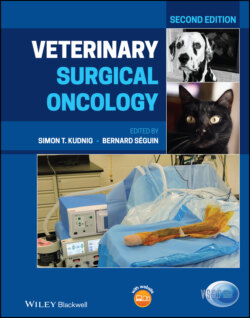Читать книгу Veterinary Surgical Oncology - Группа авторов - Страница 132
Tyrosine Kinase Inhibitors
ОглавлениеIn dogs, 20–30% of MCTs express a mutated form of KIT, a receptor tyrosine kinase involved in the development or progression of MCT growth and differentiation. Small‐molecule tyrosine kinase inhibitors including imatinib mesylate (Gleevec), masitinib, and toceranib have shown efficacy against canine MCTs (London et al. 2009; Isotani et al. 2008; Hahn et al. 2008).
Toceranib phosphate (Palladia) has recently been licensed for use in veterinary medicine for treatment of mast cell disease. A multicenter, placebo‐controlled, randomized study demonstrated a 42% response rate to Palladia in dogs with grade II or III cutaneous MCTs (London et al. 2009). Ulcers of the stomach and intestine have been a common side effect of this medication (London et al. 2009). The status of the c‐KIT mutation of the mast cell tumor does not predict response to masitinib or toceranib (Weishaar et al. 2018; Horta et al. 2018).
